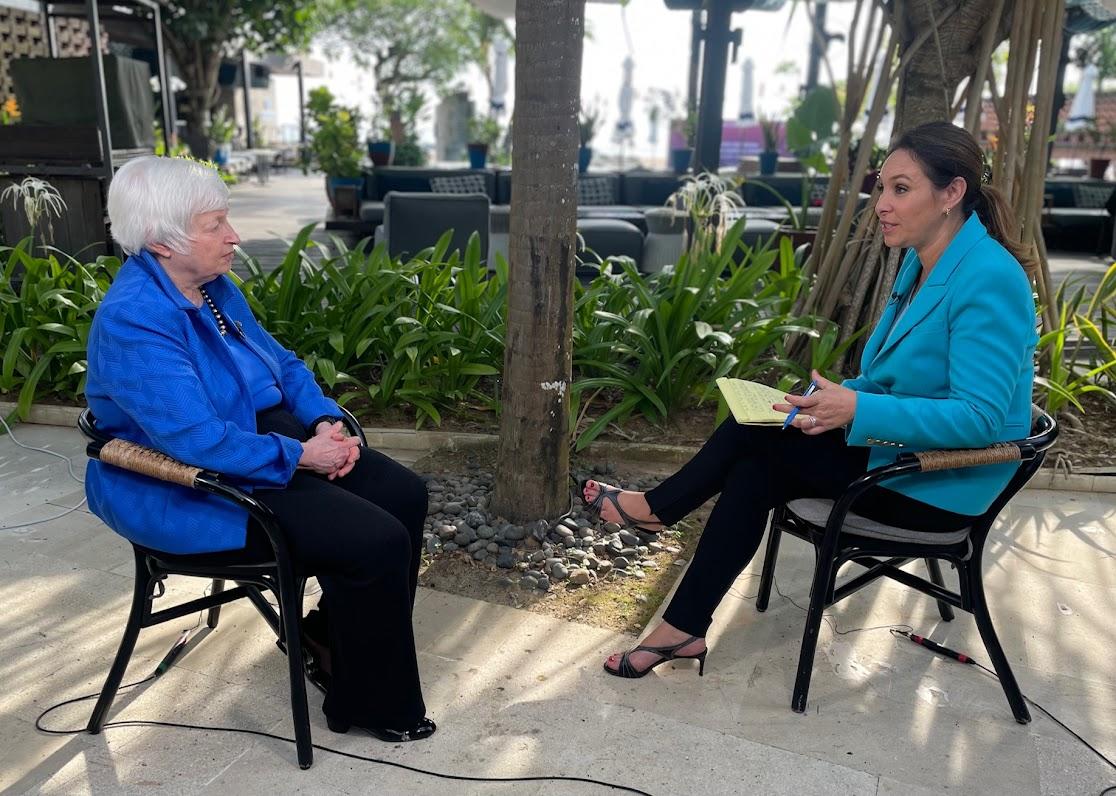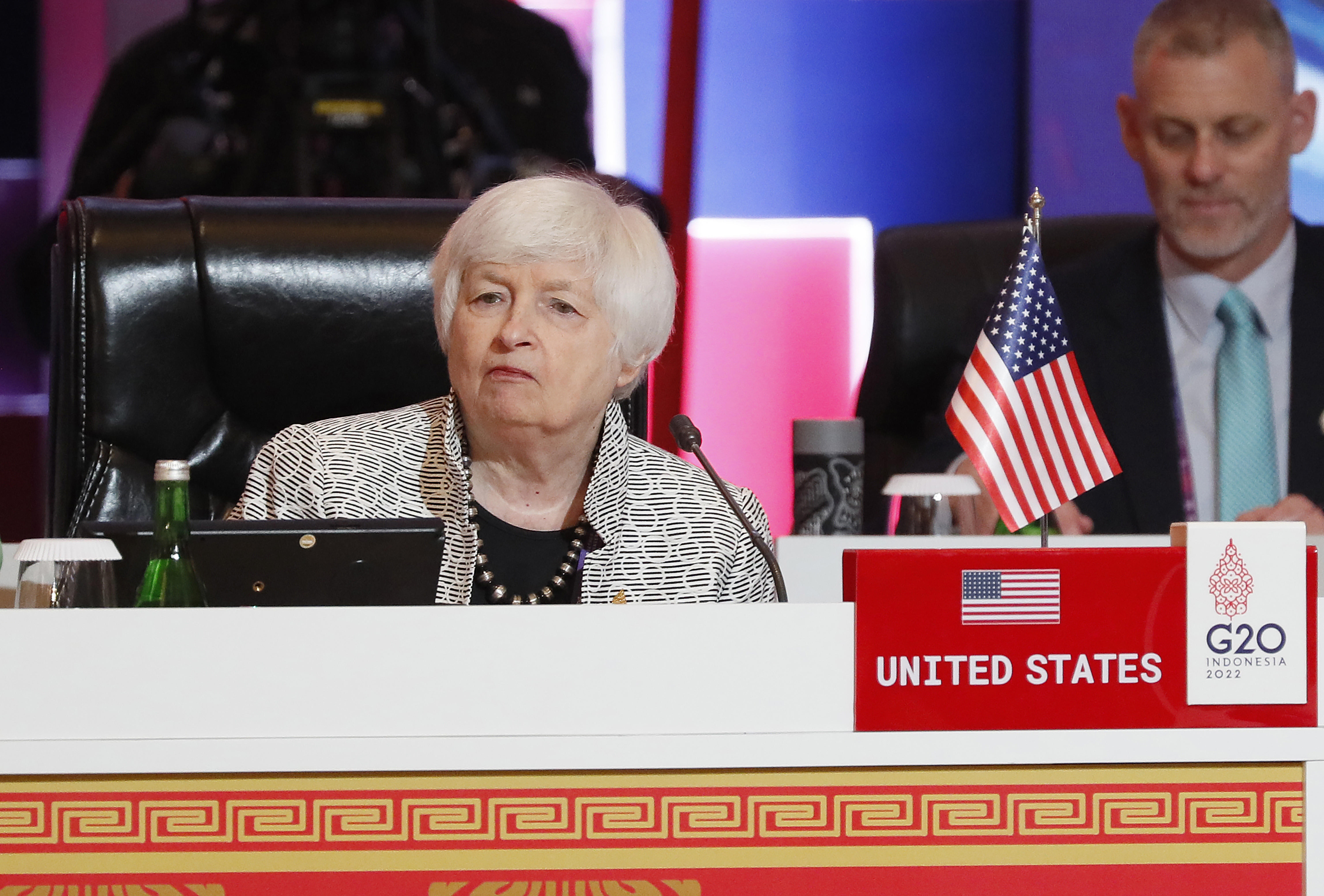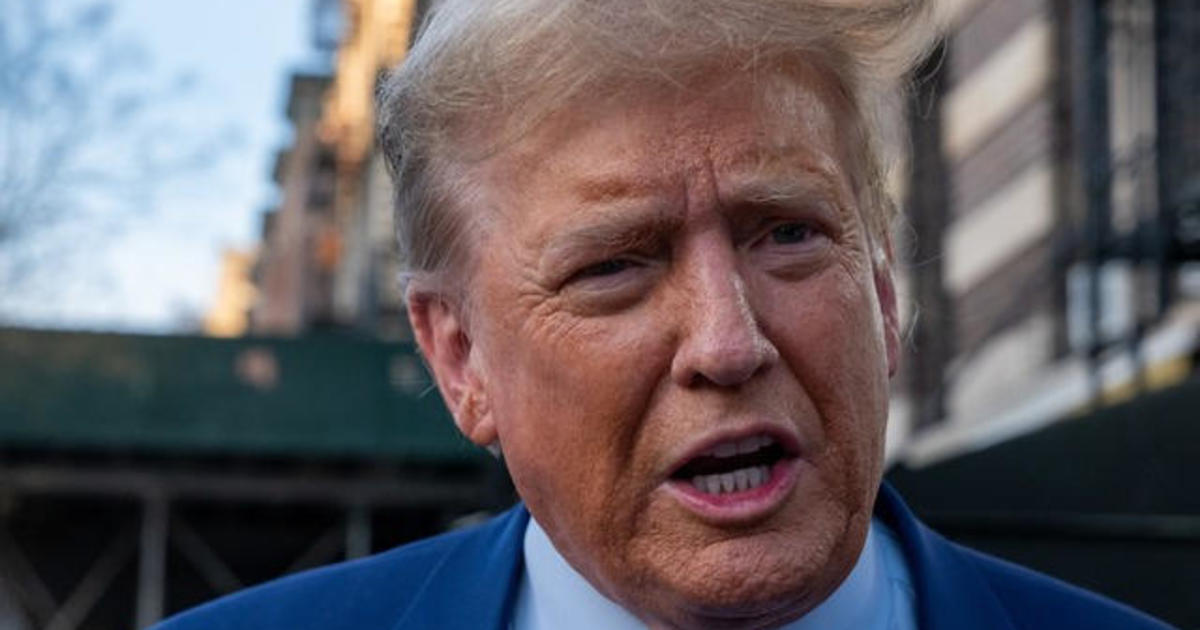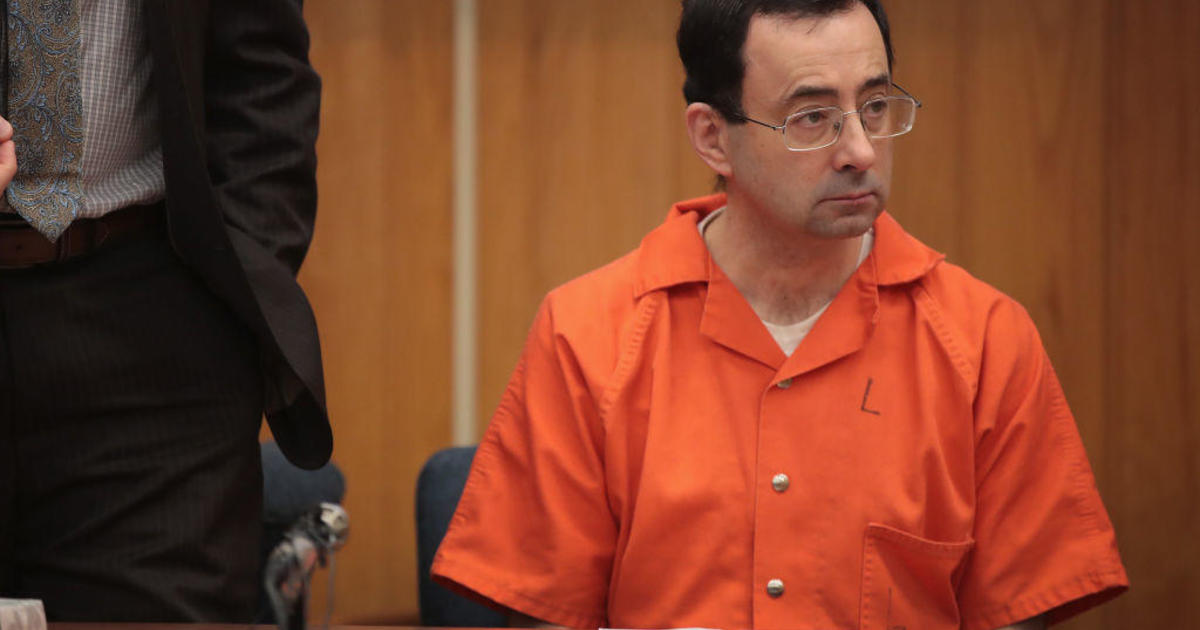Janet Yellen says FTX collapse shows cryptocurrencies are "risky… even dangerous" investments
Treasury Secretary Janet Yellen has told CBS News that the spectacular collapse of cryptocurrency exchange FTX, which sent shockwaves through the crypto world last week with its bankruptcy filing, should serve as a warning to Americans about investing their money in "extremely risky" financial products traded in a space lacking "appropriate supervision and regulation."
FTX, one of the world's largest cryptocurrency exchanges, crumbled in the space of only about one week, and both the company and its former CEO, Sam Bankman-Fried, are now being investigated in the U.S. and other nations for possible securities violations. While the fallout from FTX's collapse has largely been limited to the crypto finance markets, Yellen joined a rising chorus of experts and officials around the world suggesting the digital currency industry should face more regulation.
"I think this is a space where investors and consumers should really be very careful," Yellen told CBS News correspondent Nancy Cordes in a wide-ranging interview in Bali, where the Treasury Secretary was attending the G20 summit alongside President Biden.
"We have very strong investor and consumer protection laws for most of our financial markets, but in some ways the crypto space has inadequate regulation."
Yellen said the Biden administration had highlighted "regulatory holes that need to be filled for this to be a space where Americans can feel safe doing business," and blamed the "absence of appropriate supervision and regulation" for the FTX collapse.
Yellen stressed that she was not in a position to offer Americans specific advice on how they should or should not invest their money, but she called cryptocurrencies "extremely risky assets, and even dangerous in some ways," and urged people to "be extremely careful about their activities in this space."
FTX's creditors will be first in line to receive whatever assets a bankruptcy judge deems appropriate to distribute as the company seeks to restructure as part of its Chapter 11 filing. Investors in the Bahamas-based company, which had raised some $2 billion in venture capital, will be second in line. That means FTX account holders, who used the platform to trade bitcoin, solana and other digital currencies, may have to wait years to get their money back – if they ever do.
A "strong, resilient economy" vs inflation
The Treasury chief described the U.S. economy overall as strong and resilient and said she expected inflation to ease over the coming year with plenty of jobs on offer for Americans, but she warned that the global picture remained "uncertain."
"Many countries are really suffering from high energy and food prices, and we have those strains ourselves, but we have a strong, resilient economy," Yellen told Cordes, calling the U.S. labor market "exceptionally strong."
"We continue to create jobs at a very solid pace. Unemployment at almost 50-year lows, and two job openings for every American who's looking for work," she said, calling the economic circumstances for the country's households, banks and businesses "by and large solid."
"I expect inflation to come down over time, and Americans are rightly concerned about that, but I believe they'll be feeling better about it," she said.
Diesel "shortages and low inventories"
One thing that could work against the U.S. inflationary rebound this winter is a limited supply of diesel fuel, which is used both to heat buildings and to move virtually everything Americans buy around the country. Diesel powers most freight trains and trucks, and a global shortage of the fuel has seen prices climb more than 40% over the last year, and they're still rising.
One major U.S. supplier's warning of a "shortage" on the East Coast earlier this month sparked rumors that the fuel could even run out.
While U.S. inventories of diesel are lower than they have been since 1982, energy market experts told CBS MoneyWatch the tight supplies were no reason to panic, and the U.S. was not going to run out — at least not in the coming weeks, and not unless the global supply chain completely broke down.
Yellen shared that optimism, but cautiously. Asked by Cordes if the U.S. had enough diesel to get through the winter, she said: "Hopefully, I believe there will be," but acknowledged there would be "some shortages and low inventories" on the East Coast.
"Hopefully we won't see a further increase — prices have gone up and we're monitoring the situation very closely," she told Cordes, adding that the Biden administration has "had conversations with the oil companies about it."
Shift to EVs "reliant on China"?
President Biden has spoken a lot about his ambition to see half of the vehicles on U.S. roads powered by electricity, not fossil fuels, by 2030, but the Pentagon recently called China's dominance of the electric vehicle (EV) battery market a major challenge to that goal.
Most of the raw materials used to make lithium-ion vehicle batteries are produced by China, and Yellen acknowledged that the U.S. and its auto industry have "been reliant on China" thus far.
The Treasury Secretary said the Inflation Reduction Act approved by Congress over the summer "contains incentives and provisions that are intended to change that and to diversify our supply chains for battery components."
"They are very strong incentives for investment in these minerals in the United States and other allies, so we have a heavy focus on that," Yellen said, adding that from next year companies that assemble EVs in North America will be "required to source around 40% of minerals, or mineral processing, in the United States or other countries that we have free trade areas with, so over time I expect the situation to change and we will become less reliant on China."
CBS MoneyWatch's Kristopher J. Brooks and Megan Cerullo contributed to this report.





